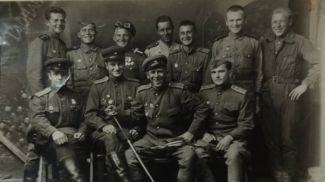MINSK, 18 March (BelTA) - The 20th century, a time of military and political conflicts, was a trying time for the Belarusian statehood, senior researcher with the Belarus' contemporary history department at the Institute of History of the National Academy of Sciences, Ph.D. in History, Associate Professor Valentin Mazets said at a meeting of BelTA's Expert Community project. The meeting discussed the impact and consequences of the Peace of Riga for Belarusian people.
“The Belarusian statehood had a very difficult time during the period from 1914 to 1921, a time of military and political conflicts on the Belarusian lands. First it was World War I, the partition of the territory of Belarus under the Peace of Brest. Following an additional treaty, a Belarusian newspaper wrote in the summer of 1918: “We are being divided again and again, under the Peace of Brest first, then the additional treaty. A new division is looming.' They just felt this could happen again," said Valentin Mazets.
According to him, Belarus was not a subject of international law at that time. "The period of the Polish-Soviet War, and then the conclusion of the Peace of Riga, the time from early 1919 to March 1921 was geopolitically very unfavorable for the Belarusian statehood. Most of the big powers at that time - the Entente countries, the United States, Germany - were busy concluding the Treaty of Versailles. Things in the east, the Belarusian lands, Poland and Russia, the outskirts of Europe, got less attention," he said.
Another important legal aspect of the Peace of Riga was that it was concluded without the participation of a delegation of Soviet Byelorussia. "The Poles were vehemently against allowing a BNR delegation. On the other hand, Soviet Union's Chicherin (commissioner for foreign affairs) was opposed letting Chervyakov (head of government of Soviet Byelorussia) conclude the treaty. We see that the policy was to make sure Belarus was not a subject. Its interests were disregarded. That was why the lands were not returned until 1924,” Valentin Mazets noted. At the initial stage of the Polish-Soviet War the Entente countries did not care about the fate of Belarus. They were interested primarily in how best to redistribute the territory of defeated Germany. So Belarus was a secondary issue. It was only later, when Soviet Russia and Germany concluded the Treaty of Rapallo in 1922, that the problem of the Peace of Riga was raised at the Genoa Conference for the first time. We can make a conclusion that none of the Entente powers recognized the Peace of Riga back then,” he added.













